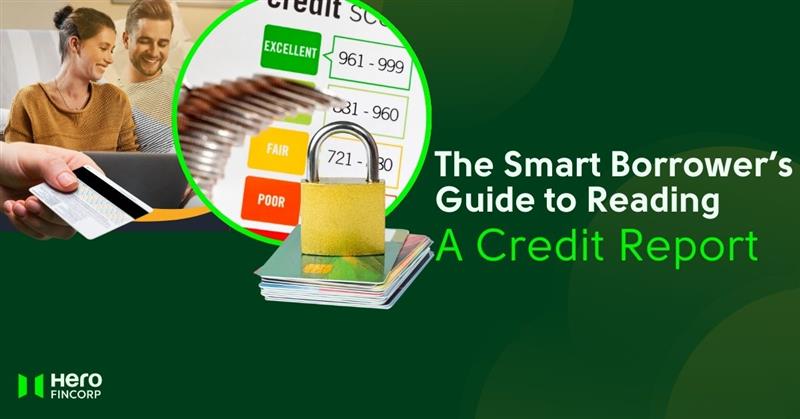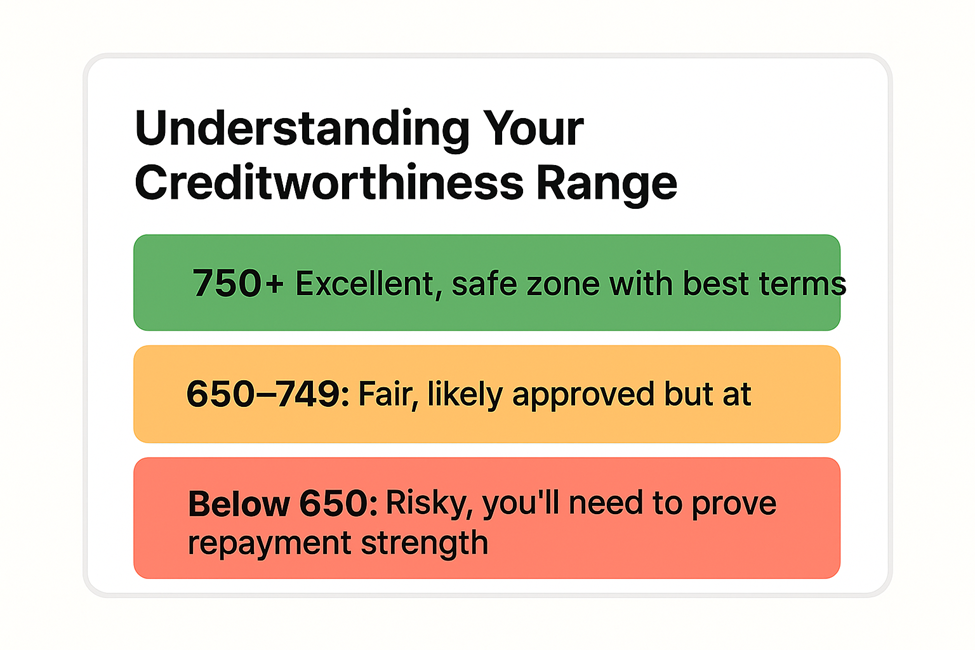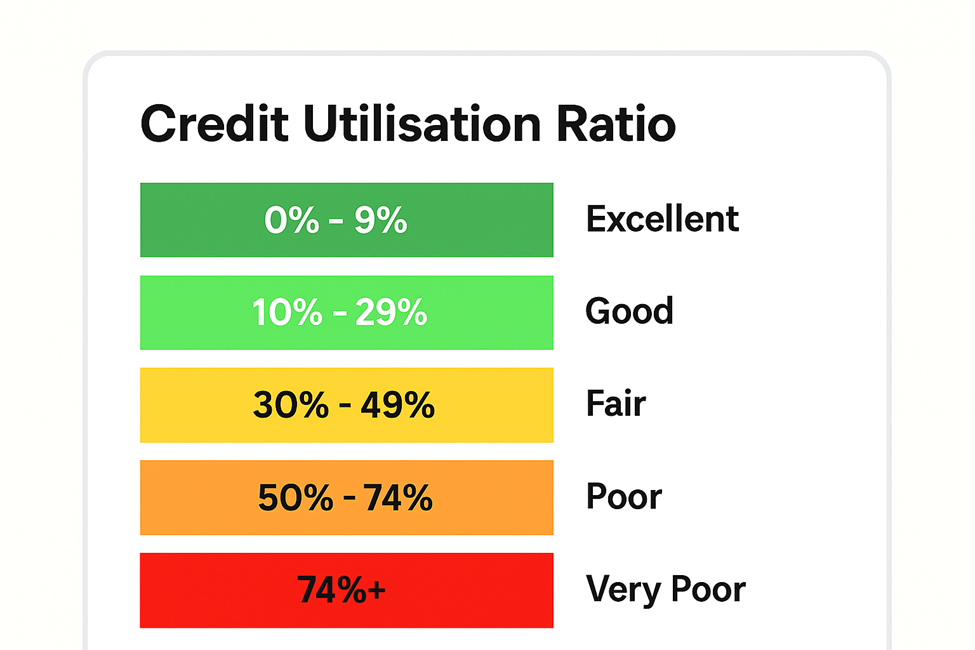The Smart Borrower’s Guide to Reading a Credit Report

A credit report reflects how you handle money, including bills, EMIs, overdue payments, and even errors you may not know exist. Every transaction you make, from paying your EMI through UPI to managing your credit card bills, leaves a mark here.
Lenders study this report before offering you a personal or business loan. So, reading your credit report correctly can save you stress and money. Here’s a complete guide to reading a credit report correctly.
10 Things to Check in Your Credit Report
Your credit report is the first thing lenders look at before approving a loan or credit card.
Here are some essentials you should never skip:
1. Personal Information
Make sure your contact information, Aadhaar number, PAN, and name are correct. A minor mistake could lead to confusion, hold up approvals, or connect you to someone else's credit history.
2. CIBIL Score

Ensure your score is updated and accurate. Lenders usually prefer a CIBIL score of 750+ for loan approval. If incorrect data drags it down, you may lose out on better interest rates or even face rejection.
3. Credit Accounts
Go through all active and closed loans or credit cards. Watch out for accounts you don’t recognise. These could be errors or signs of identity theft that can hurt your financial profile.
4. Repayment History
This is where lenders see how disciplined you are with money. Even one late EMI, wrongly reported, can signal “high risk” to banks. By reviewing this section, you’re not just checking records; you’re protecting your reputation as a reliable borrower.
5. Loan Settlements
A loan you’ve already closed but still marked “active” can hurt new credit applications. Worse, a settled loan can make lenders think you couldn’t repay in full. Double-check this section so your past doesn’t unfairly block future opportunities.
6. UPI Loan Payments
More people are paying EMIs via UPI apps. But if these payments don’t show up correctly, it may look like you’ve skipped dues. Verifying UPI transactions on your credit report ensures your digital payments build your credit history, not damage it.
7. Public Records
This section can make or break a loan approval. A wrongly listed NPA, bankruptcy, or court remark can overshadow years of good repayment. By scanning this area carefully, you protect yourself from errors that unfairly label you as “high risk” when you actually aren’t.
8. Hard Inquiries
Each time you apply for credit, it’s logged here. Too many checks within a short span can suggest financial stress. Sometimes inquiries appear even if you never applied. Reviewing them ensures your report reflects intent, not mistakes—or worse, unauthorised activity in your name.
9. Credit Utilisation

Using most of your credit card limit regularly can make lenders nervous, even if you pay on time. It signals dependency on borrowed money. Checking this ratio on your report helps you stay in the healthy zone (ideally below 30%) so your score doesn’t silently dip.
Keep your credit report error-free and borrow with confidence. Apply for a quick loan on Hero FinCorp's personal loan app in just a few clicks!
10. Errors and Duplicates
Your CIBIL score can be harmed by mistakes and duplicate entries in your credit record. Lenders may believe you are riskier than you actually are if you have a loan that is incorrectly classified, a duplicate account, or an unfamiliar entry.
To protect your credit profile, be sure to thoroughly evaluate and register a dispute with the bureau right away.
Check Your Credit Report, Strengthen Your Score, Borrow Smarter with Hero FinCorp
Your chances of receiving speedy approvals, better loan offers, and reduced interest rates are increased by a clear, accurate report. This is why it's financially necessary to keep an eye on your credit report.
Ready to take control of your finances? Connect with us and discover personalised solutions that make borrowing simple, fast, and hassle-free!
Frequently Asked Questions
1. How often should I check my credit report?
Reviewing your credit report at least once every six to twelve months is advised. Frequent checks guarantee that your CIBIL score appropriately represents your financial conduct, help you identify mistakes, and detect any fraud.
2. What should I do if I find an error in my credit report?
File a dispute with the credit agency right away if you see errors like inaccurate balances, duplicate accounts, or unidentified loans. You can avoid having your score adversely impacted by promptly fixing mistakes.
3. Do all my credit card and loan payments affect my credit score?
Indeed. Making on-time payments on loans, credit cards, and even electronic EMIs adds to your credit history. It's crucial to keep a close eye on your payments because they might have a detrimental effect on your CIBIL score if they are missed, late, or incorrectly reported.
Disclaimer: The information provided in this blog post is intended for informational purposes only. The content is based on research and opinions available at the time of writing. While we strive to ensure accuracy, we do not claim to be exhaustive or definitive. Readers are advised to independently verify any details mentioned here, such as specifications, features, and availability, before making any decisions. Hero FinCorp does not take responsibility for any discrepancies, inaccuracies, or changes that may occur after the publication of this blog. The choice to rely on the information presented Here is at the reader's discretion, and we recommend consulting official sources and experts for the most up-to-date and accurate information about the featured products.